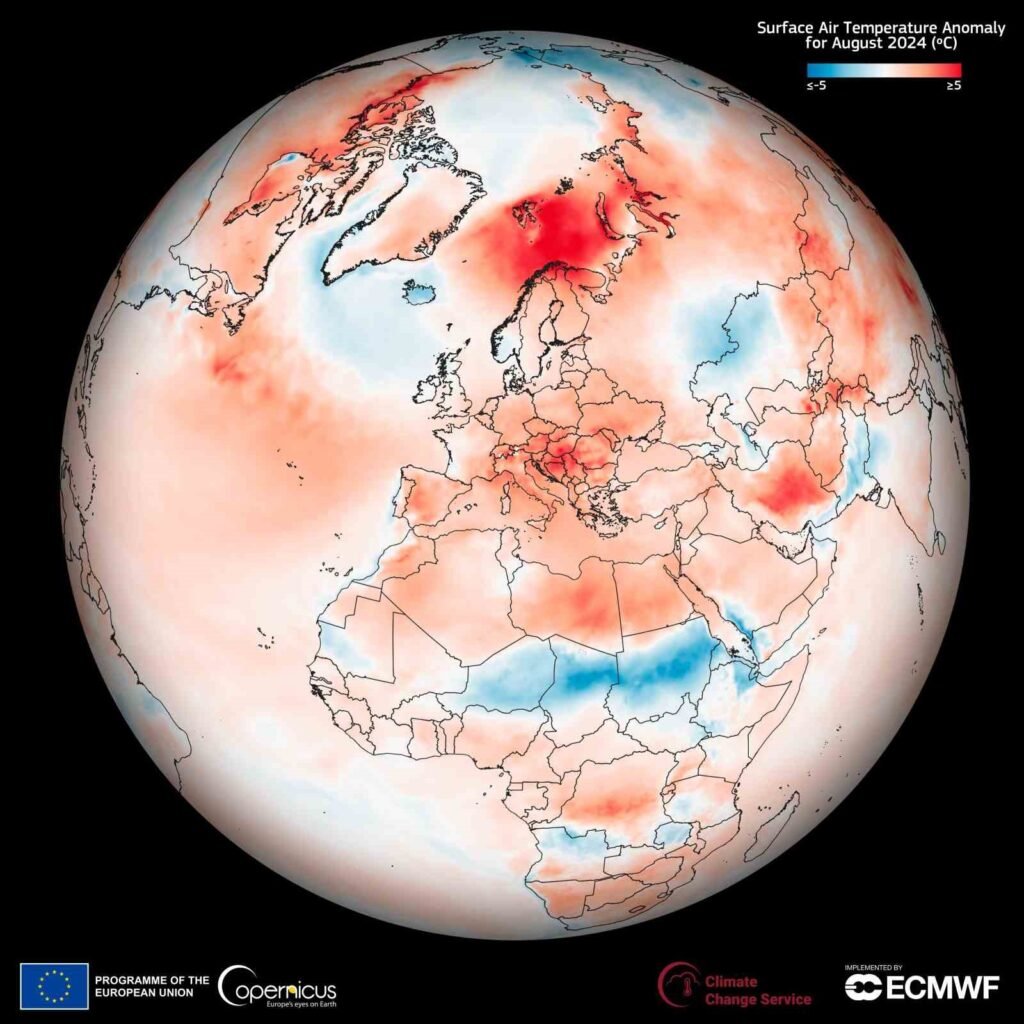The summer of 2024 was recorded as the hottest summer
The European Union (EU) Copernicus Climate Change Service has announced that the summer of 2024 is set to be the hottest summer on record. As global warming continues to have an increasing effect day by day, the Earth continues to set frightening records. The European Union (EU)…

The European Union (EU) Copernicus Climate Change Service announced that the summer of 2024 is recorded as the hottest summer on record.
As global warming continues to increase its impact day by day, the world continues to break frightening records. According to data from the EU Copernicus Climate Change Service, the period between June and August has been recorded as the hottest summer since records began in 1940. The Copernicus statement emphasized that following the record temperatures, the possibility of 2024 being recorded as the hottest year in human history has also increased.
According to the institution’s data, the average temperature during summer in the Northern Hemisphere was recorded at 16.8 degrees Celsius, surpassing the previous record set in 2023 by 0.03 degrees.
“August 2024 was the hottest August globally”
In the Copernicus statement, it was noted that “August 2024, together with August 2023, was the hottest August globally. According to the ERA5 dataset, the average surface air temperature rose 0.71 degrees above the August average for the period 1991-2020, reaching 16.82 degrees Celsius.”
Regarding temperatures in Europe, it was stated, “In August 2024, the average continental temperature in Europe was 1.57 degrees Celsius above the August average for the period between 1991-2020. This made August the second hottest August recorded after August 2022. August 2022 was 1.73 degrees Celsius above average.”
Temperatures in Southern and Eastern Europe are above average
According to the institution, while temperatures in Southern and Eastern Europe were above average, temperatures in Britain, Iceland, the western coast of Portugal, and southern Norway remained below average. Outside of Europe, regions where air temperatures were above average included eastern Antarctica, Texas, Mexico, Canada, Northeast Africa, Iran, China, Japan, and Australia. Regions where air temperatures remained below average included eastern Russia, Alaska, the eastern United States, southern regions of South America, Pakistan, and the Sahel region.
The changing climate of the planet triggered disasters this summer
Severe rainfall in Sudan last month caused floods that affected more than 300,000 people and brought cholera to the war-torn country. Severe drought was experienced in the Italian islands of Sicily and Sardinia. In the Balkans, the source of the river Bosna, which gives its name to Bosnia, was on the verge of drying up, while the Orljava River, a left tributary of the Sava River in Croatia, completely dried up. In the city of Volos, Greece, due to severe climate events, more than a hundred tons of fish that had moved away from their freshwater habitats died when they encountered salty seawater.
Scientists argued that Typhoon Gaemi, which struck the Philippines, Taiwan, and China in July, causing the deaths of over 100 people, was also intensified by the effects of climate change.
“If precautions are not taken, it will intensify with more devastating consequences”
Samantha Burgess, Deputy Director of the Copernicus Climate Change Service (C3S), stated, “In the last three months of 2024, the Earth experienced the hottest June and August ever recorded, the hottest day on record, and the hottest summer recorded in the Northern Hemisphere. This series of record temperatures increases the likelihood of 2024 becoming the hottest year on record. These extreme events related to the temperatures we witnessed this summer will intensify with much more devastating consequences for people and the planet unless urgent measures are taken to reduce greenhouse gas emissions.”






